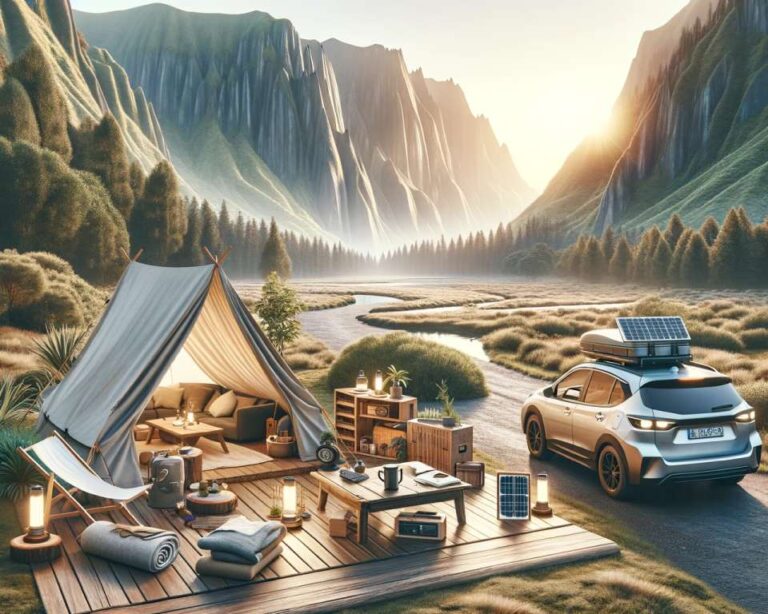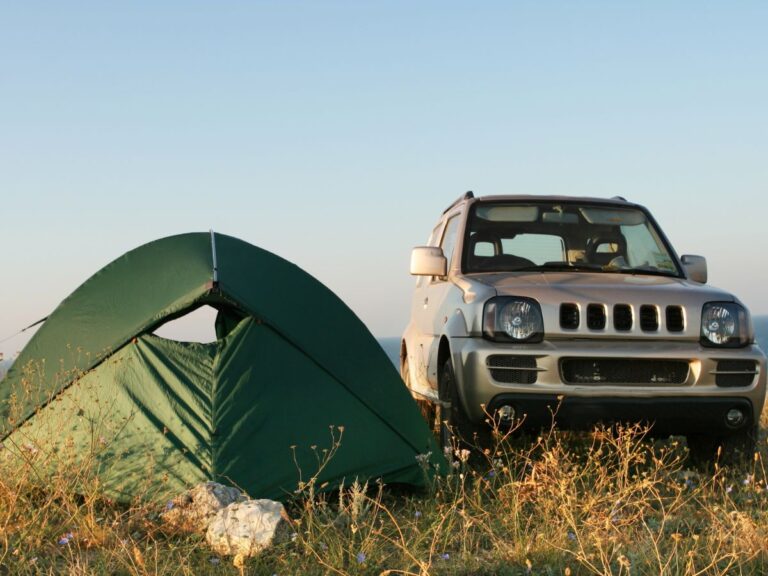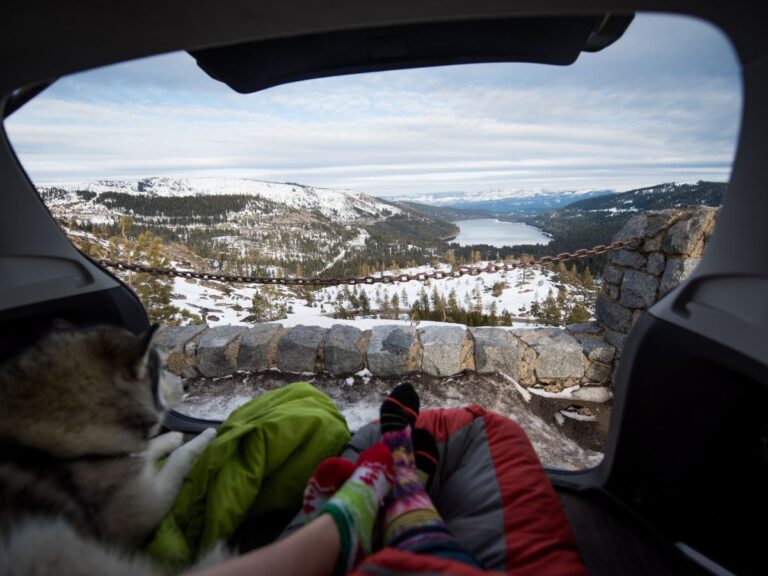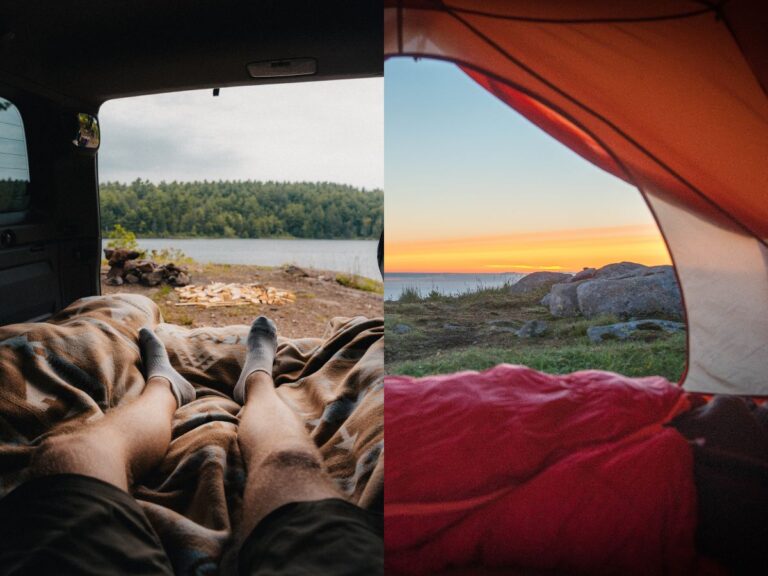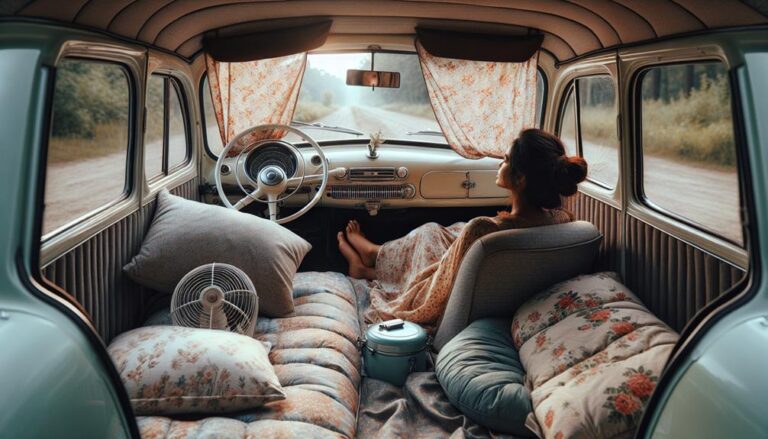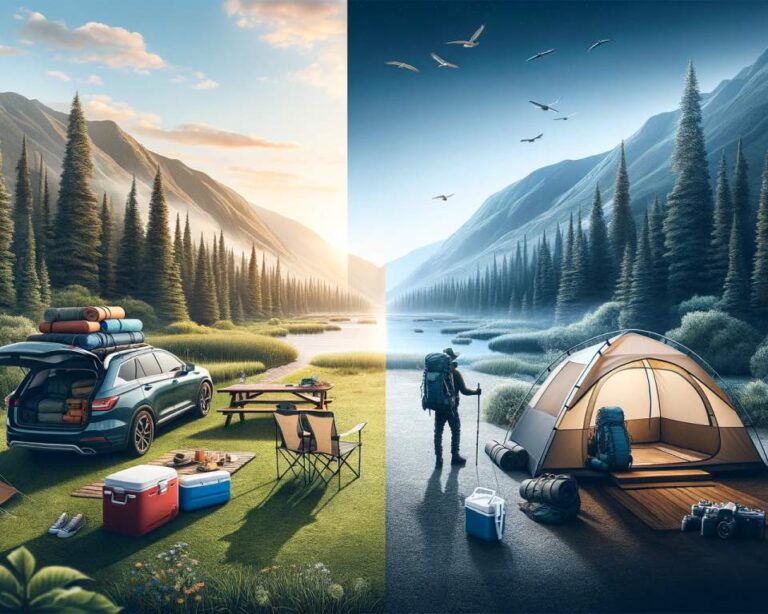Navigating Car Camping Legality: Regional Rules and Regulations
Car camping is a popular and budget-friendly way to enjoy the outdoors, but it’s important to understand the legalities of car camping in order to have a safe and worry-free experience. The car camping laws and regulations can vary across different states, counties, and cities, so it’s crucial to be aware of the rules in your region.
There are several reasons why certain areas have restrictions on sleeping in your car. Concerns about homelessness, safety hazards, public nuisances, and legal liabilities all contribute to the creation of car camping regulations. It’s essential to understand the distinction between sleeping in your car for a short period of time and car camping as part of a camping trip.
In this article, we will explore the legality of car camping in different regions, including state laws, regional variations in regulations, and legal places to sleep in your car. We will also provide resources for finding legal car camping locations and discuss alternative accommodations for those areas where car camping is not permitted. Let’s dive in and navigate the complex world of car camping legality together.
Understanding Sleeping in Your Car vs. Car Camping
To navigate car camping legality, it is essential to understand the difference between sleeping in your car and car camping. Sleeping in your car typically refers to taking a short nap or resting in your vehicle for a brief period, generally in roadside areas, rest areas, or parking lots.
On the other hand, car camping involves spending the night in your car as part of a camping trip, often in designated campgrounds, national forests, or Bureau of Land Management (BLM) areas. The distinction between the two is important as different rules and regulations may apply depending on whether you are sleeping in your car temporarily or car camping for an extended period.

State Laws on Sleeping in Your Car
The legality of sleeping in your car can vary depending on the state you are in. While some states do not have specific laws that prohibit sleeping in cars, others have regulations that either restrict or allow it under certain circumstances.
For example, Alabama and Alaska do not have general laws banning sleeping in cars, meaning it is generally allowed unless there are other local regulations in place. On the other hand, Arizona prohibits sleeping in cars at rest areas.
It is crucial to familiarize yourself with the specific laws of each state you plan to visit or camp in to understand the legality of sleeping in your car. This knowledge will help ensure that you are in compliance with local regulations and can enjoy your car camping experience without any legal issues.
Regional Variations in Car Camping Regulations
When it comes to car camping, it’s essential to be aware of the regulations that apply to your specific region. Car camping regulations can vary at the regional level, including county and city regulations. These regulations may include specific ordinances or permits that govern where and how car camping is allowed.
For example, certain cities may have restrictions on overnight parking in residential areas or tourist spots to prevent public nuisances. These regulations aim to balance the needs of residents, tourists, and the local community. To ensure a smooth and hassle-free car camping experience, it is crucial to research and comply with the regulations of the specific regions you plan to visit.
By understanding and respecting these regulations, you can avoid any potential legal issues and enjoy your car camping adventure responsibly. Check with local government websites or visitor information centers to access accurate and up-to-date information on car camping permits, ordinances, and any specific restrictions that may apply in your desired area.

Remember, regulations can vary greatly from one region to another, so it’s important to stay informed. Whether you’re planning a road trip or exploring a new area, taking the time to understand the local car camping regulations will help ensure a positive experience for both you and the community you’re visiting.
Legal Places to Sleep in Your Car
Despite the restrictions in certain areas, there are still legal places to sleep in your car. Rest areas in many states often allow overnight parking for safety reasons, although there may be limitations on the duration of stay. Some Walmart stores also permit overnight parking for RVs and cars, but it is always advisable to check with store management first.
“Rest areas can provide a safe and convenient option for car camping, especially during long road trips.” – John Anderson, Car Camping Enthusiast
In addition to rest areas and Walmart, there are other legal accommodations available for car camping. Campgrounds and RV parks offer designated spaces with amenities such as bathrooms, showers, and picnic areas. These facilities are usually available for a fee and can provide a more comfortable camping experience.
BLM and National Forest Lands
If you are looking for a more rustic and secluded car camping experience, consider exploring Bureau of Land Management (BLM) and National Forest lands. These public lands often allow dispersed camping, which means you can camp away from developed areas and enjoy nature.

- BLM and National Forest lands offer a wide range of car camping opportunities, from developed campgrounds with facilities to remote backcountry sites.
- Make sure to research the specific rules and regulations of the area you plan to visit, as some locations may have restrictions on campfire usage or vehicle access.
Casino parking lots and truck stops are other legal options for car camping. Some casinos allow overnight parking, providing a convenient and safe place to spend the night. However, it is important to check with the casino management beforehand to ensure their policies allow for car camping.
Remember, each region may have its own designated areas or facilities where car camping is allowed, so it is crucial to research and respect the rules of the specific locations you plan to visit.
Key Takeaways:
- Rest areas and certain Walmart locations often permit overnight parking for car camping, but always check with store management or local authorities first.
- Campgrounds, RV parks, BLM and National Forest lands, casino parking lots, and truck stops are other legal places to sleep in your car.
- Research the regulations of each specific location to ensure you comply with any restrictions or guidelines.
Resources for Finding Legal Car Camping Locations
When it comes to car camping, finding legal and reliable locations is key to a successful and stress-free experience. Fortunately, there are several websites and apps available that can help you in your search. These resources provide valuable information on where you can park, sleep, and camp legally in your car, ensuring that you abide by local regulations and enjoy your outdoor adventure responsibly.
Park4Night
Park4Night is a popular website and app that caters to car campers and van lifers. It allows users to search for and share car camping locations, providing detailed information about each spot. With Park4Night, you can browse through a wide range of places to park and sleep, complete with reviews, photos, and amenities. Whether you’re looking for a scenic campsite or a convenient rest area, this resource has you covered.
FreeRoam
FreeRoam is another handy website and app that helps you find free camping spots, including locations where car camping is allowed. It offers a user-friendly interface with search filters for location, distance, cell signal, and ratings. With FreeRoam, you can easily discover hidden gems and off-the-beaten-path campsites that may not be listed on traditional camping platforms. This resource is perfect for those seeking adventure and solitude in nature.
“Finding legal car camping locations has never been easier with resources like Park4Night and FreeRoam. These platforms provide valuable information and user-generated content that can help us explore new destinations and make informed decisions about where to park and camp safely in our vehicles.”
iOverlander
If you’re specifically interested in overlanding and wild camping, iOverlander is a must-have resource. This website and app offer a comprehensive database of hotels, hostels, campgrounds, and wild camping spots. With iOverlander, you can access detailed information and user reviews for each location, ensuring that you find legal and suitable options for car camping. Whether you’re cruising through national forests or embarking on a cross-country journey, iOverlander has got you covered.

With these valuable resources at your disposal, you can easily find legal car camping locations that suit your preferences and needs. Remember to always respect the rules and regulations of each area, practice leave-no-trace principles, and enjoy your car camping adventures responsibly.
Dispersed Camping and BLM Lands
When it comes to car camping on public lands, dispersed camping is an option worth exploring. Dispersed camping refers to camping in remote areas away from developed recreation facilities, allowing you to connect with nature on a deeper level. This type of camping is especially prevalent in certain areas managed by the Bureau of Land Management (BLM), which oversees vast expanses of public land across the United States.
Dispersed camping is generally permitted on most public lands, including BLM-managed areas. However, it is important to adhere to certain guidelines to ensure a positive experience for yourself and the environment. Remember, the main objective is to enjoy the natural beauty without causing harm or disruption to the ecosystem.
BLM-managed lands offer a wide range of options for car camping enthusiasts. From developed campgrounds equipped with amenities, such as picnic tables and vault toilets, to more rustic backcountry sites, there is something for everyone’s preferences. These lands often feature stunning landscapes, from deserts and canyons to mountains and forests, providing a remarkable backdrop for your car camping adventure.
To make the most of your dispersed camping experience on BLM lands, it is crucial to be aware of any specific limitations or regulations in the region you plan to explore. Some areas may have restrictions on camping duration, group size, campfire usage, and vehicle access. It is recommended to check with local BLM offices or visit their website to obtain up-to-date information on dispersed camping rules and regulations.
In addition to adhering to the specific guidelines of each BLM-managed area, it is essential to practice leave-no-trace principles. This means minimizing your impact on the environment by properly disposing of waste, respecting wildlife and vegetation, and leaving the campsite as you found it. By following these principles, you can help preserve the natural beauty of BLM lands for future generations of car campers.
Benefits of Dispersed Camping on BLM Lands
- Seclusion and solitude in pristine natural settings
- Opportunities for wildlife spotting and birdwatching
- Closer proximity to hiking trails, fishing streams, and other outdoor activities
- Flexibility and freedom to choose your campsite
- Affordability, as dispersed camping on public lands is often free or low-cost
Our experience in dispersed camping on BLM lands has been nothing short of incredible. There’s something truly special about waking up to the sounds of nature and witnessing breathtaking landscapes from the comfort of our own vehicle. The sense of freedom and adventure is unmatched, and we highly recommend giving it a try!
Legal Considerations and Risks of Sleeping in Your Car
When it comes to sleeping in your car or car camping, there are important legal considerations and potential risks to be aware of. While regulations and enforcement can vary depending on the location, it’s crucial to understand the legal implications to avoid fines or other legal consequences.
One of the key safety concerns associated with sleeping in your car is the risk of theft. Leaving yourself and your belongings vulnerable in a public space can make you a target for theft or break-ins. It’s important to take precautions such as parking in well-lit areas, locking your doors, and keeping valuables out of sight.
Another potential risk is personal safety issues. Sleeping alone in an unfamiliar area can leave you vulnerable to encounters with strangers. It’s wise to research the safety of the area beforehand and trust your instincts if something feels off.

If you choose to run your vehicle’s engine for heating or air conditioning while sleeping, there is a danger of carbon monoxide poisoning. This colorless and odorless gas can build up in an enclosed space and be fatal. Always ensure proper ventilation and never sleep with the car running.
Extreme temperatures can also pose health risks. Sleeping in a hot car can lead to dehydration and heatstroke, while cold temperatures can cause hypothermia. Take measures to regulate the temperature inside your vehicle and pack appropriate clothing and bedding for the conditions.
We encourage you to stay informed about the specific laws and regulations in your area to ensure a safe and legal car camping experience. By understanding and mitigating the risks associated with sleeping in your car, you can take the necessary precautions and enjoy your outdoor adventures with peace of mind.
Alternatives to Sleeping in Your Car
If car camping is not a viable option or legal in your intended location, there are alternative accommodations available. Traditional campgrounds and RV parks offer designated spaces for camping, usually for a fee. These camping accommodations provide amenities such as restrooms, showers, and sometimes even Wi-Fi, ensuring a comfortable and convenient camping experience.
Budget hotels and hostels are another alternative to consider. They offer affordable overnight stays with basic amenities, including comfortable beds, clean restrooms, and sometimes communal kitchens or common areas. These options are particularly suitable for travelers seeking a more traditional accommodation experience and a break from their car camping adventures.
In some cases, shelters designed for individuals experiencing homelessness may also provide temporary lodging options for those in need. These facilities aim to offer a safe and secure environment for overnight stays. While not specifically intended for camping purposes, they can be a cost-effective and legal solution in situations where car camping or other accommodations are not available.
When car camping is not possible, planning and researching alternative accommodations in advance is crucial. Consider your budget, comfort preferences, and the availability of different options in your desired location. By exploring these alternatives, you can ensure a pleasant and compliant experience while enjoying the great outdoors.
FAQ
Is sleeping in your car the same as car camping?
No, sleeping in your car typically refers to taking a short nap or resting in your vehicle temporarily, while car camping involves spending the night in your car as part of a camping trip.
Are there specific laws regarding sleeping in your car?
The legality of sleeping in your car varies from state to state, with some states prohibiting it under certain conditions and others allowing it with no general laws banning it.
Do car camping regulations vary by region?
Yes, car camping regulations can vary at the regional level, including county and city regulations, which may have specific ordinances or permits that govern where and how car camping is allowed.
Where can I legally sleep in my car?
Legal places to sleep in your car include rest areas, certain Walmart stores, campgrounds, RV parks, truck stops, BLM and National Forest lands, and some casino parking lots, depending on the specific regulations of each location.
Are there resources available for finding legal car camping locations?
Yes, websites and apps like Park4Night, FreeRoam, and iOverlander provide information and reviews on legal car camping locations.
What is dispersed camping, and can I car camp on BLM lands?
Dispersed camping refers to camping on public lands away from developed recreation facilities. BLM lands often allow dispersed camping, providing various opportunities for car camping, depending on the region and any specific limitations or regulations.
What are the legal considerations and risks of sleeping in your car?
Violating local ordinances or private property rights can result in fines or legal consequences when sleeping in your car. Safety concerns include theft, personal safety issues, carbon monoxide poisoning, and health risks due to extreme temperatures.
Are there alternatives to sleeping in your car?
Yes, alternative accommodations include traditional campgrounds, RV parks, budget hotels, hostels, and shelters designed for individuals experiencing homelessness.


